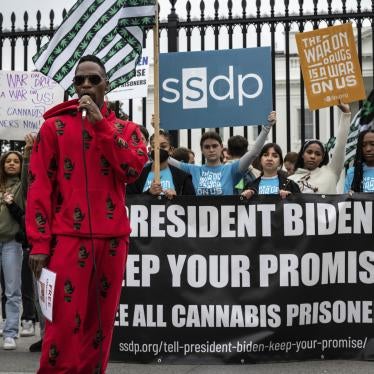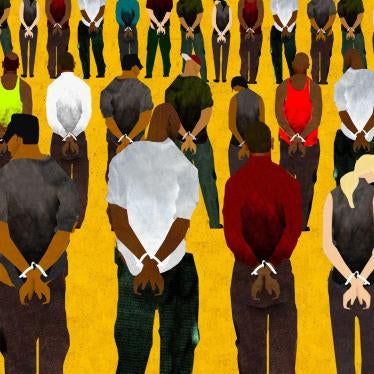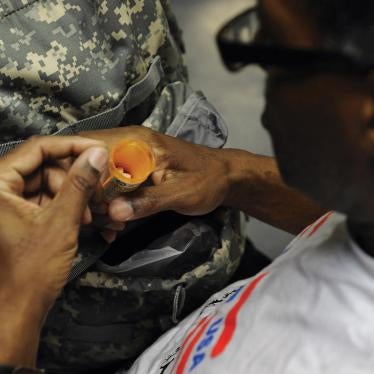Human Rights Watch has criticized laws and policies which deny the rights of formerly incarcerated people and which prevent their successful reintegration into the community. If enacted this legislation will be an important first step in addressing those problems.
The Second Chance Act would establish a National Offender Reentry Resource Center for states, local governments, service providers, faith-based organizations, corrections and community organizations to collect and disseminate best practices and provide training and support around reentry. It would also create a Federal Task Force to review and issue a report on the federal barriers to reentry; restrict the ban on federal student loans to only those who commit drug offenses while receiving federal aid; and provide grants to states and local governments to provide post-release housing, mental health services, substance abuse treatment to those returning to communities.
Thousands of people return from prison to unwelcoming and often hostile communities each year—employers refuse to hire them, landlords will not rent to them, and social service programs do not have sufficient resources to meet their needs. But many of the barriers to successful reentry are not the result of individual prejudice or lack of funding. Focused on punishment rather than rehabilitation, legislators have enacted needless and counterproductive punitive laws that restrict the rights of the formerly incarcerated and limit their reintegration.
Introducing the Act, several lawmakers also identified the need for additional legislation to reduce existing legal barriers. Next steps Human Rights Watch believes should be addressed include:
- restoring the right to vote for all convicted felons following their release;
- lifting absolute barriers to public housing and requiring individualized evaluations of applications by local public housing authorities;
- outlawing unjustified employment discrimination against those with criminal records;
- amending provisions of the Adoption and Safe Families Act so that incarcerated parents have a realistic chance of regaining custody of their children; and
- repealing the federal ban on student aid for those convicted of drug offenses.
Restoration of rights to those returning from prison is essential for them to be able to fully participate in civil society. Human Rights Watch urges Congress to pass the Second Chance Act of 2004, and hopes it will serve as an entry point in turning the nation’s approach away from excessive retribution and punishment and towards rehabilitation and redemption.







